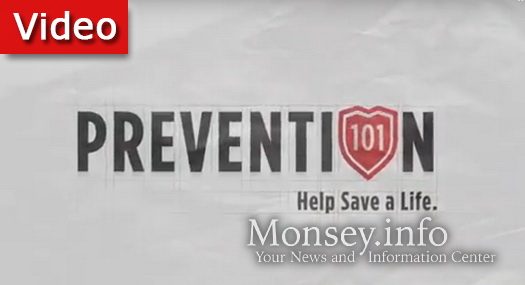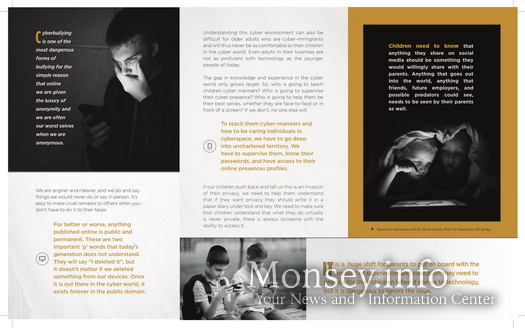
Prevention101: What can I do to Prevent Cyberbullying?
Dr. Rona Novick tells Operation Survival that parents need to supervise their children, know their passwords, and have access to their online presences
Cyberbullying is one of the most dangerous forms of bullying for the simple reason that online we are given the luxury of anonymity and we are often our worst selves when we are anonymous. We are angrier and meaner, and we do and say things we would never do or say in person. It’s easy to make cruel remarks to others when you don’t have to do it to their faces.
For better or worse, anything published online is public and permanent. These are two important ‘p’ words that today’s generation does not understand. They will say “I deleted it”, but it doesn’t matter if we deleted something from our devices. Once it is out there in the cyber world, it exists forever in the public domain.
Understanding this cyber environment can also be difficult for older adults who are cyber-immigrants and will thus never be as comfortable as their children in the cyber world. Even adults in their twenties are not as proficient with technology as the younger people of today. The gap in knowledge and experience in the cyber world only grows larger. So, who is going to teach children cyber manners? Who is going to supervise their cyber presence? Who is going to help them be their best selves, whether they are face-to-face or in front of a screen? If we don’t, no one else will.
To teach them cyber manners and how to be caring individuals in cyberspace, we have to go deep into unchartered territory. We have to supervise them, know their passwords, and have access to their online presences. If our children push back and tell us this is an invasion of their privacy, we need to help them understand that if they want privacy they should write it in a paper diary under lock and key. We need to make sure that children understand that what they do virtually is never private; there is always someone with the ability to access it.
Children need to know that anything they share on social media should be something they would willingly share with their parents. Anything that goes out into the world, anything that friends, future employers, and possible predators could see, needs to be seen by their parents as well. It is a huge shift for parents to get on board with the amount of supervision and education they need to provide for their children when it comes to technology, but we can’t afford not to.
Based on an interview with Dr. Rona Novick for Operation Survival’s Prevention101 series.











